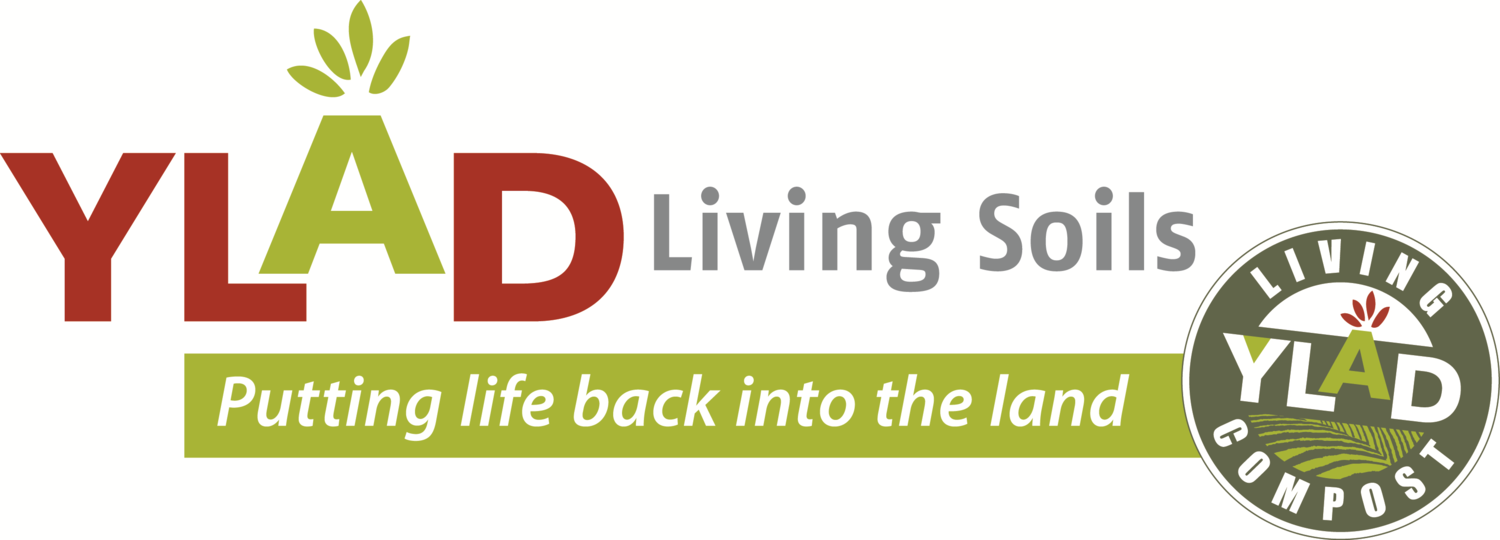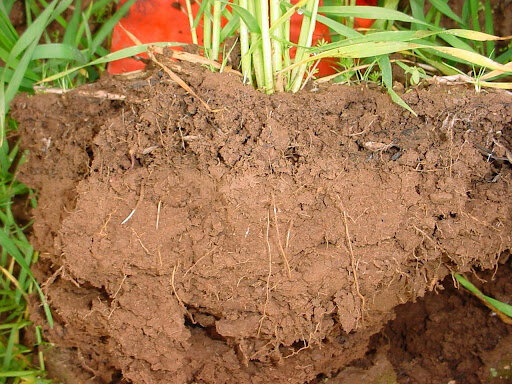What is Humus Compost?
High quality Humus Compost is the ’glue’ that holds the pieces of a sustainable soil fertility system together.
Humus Compost is produced by microbial decomposition of plant and animal feedstock followed by microbial polymerisation or build-up of humic substances in long chain polymers of humus, containing beneficial microbial population.
The production is a 10 week aerobic controlled cycle that is consistently repeatable with predictability. This aerobic process creates an optimal environment for aerobic microbes to flourish. High quality humus compost builds a microbial environment in which beneficial microbes thrive and multiply.
All too often organic matter that has been simply broken down is labelled compost. In our compost the real value comes after breakdown when long chain polymers of humus are produced by microbes that are supplemented to the compost by inoculation. Organic matter is not humus unless it has been through the body of a microbe.
Daily testing of temperature, carbon dioxide and moisture are maintained throughout the 10 week process with these levels determining when the windrow requires turning.
Moisture guard fabric covers make it possible to develop quality compost even in poor weather conditions and reduce leaching in wet weather conditions.
Extensive quality control testing of Humus Compost shows it far exceeds current industry standards. The finished compost is no longer waste or residue it is a high value natural, humus-based soil builder.
It’s unique maturity and stability lends itself to a myriad of uses and applications across a diverse range of soil based industries. Demand for Humus Compost and Compost Mineral Blends is rapidly growing because of its all-round leading edge performance in creating healthy, balanced, highly fertile soils.
The microbial profile in the soil is influenced by the microbial environment of the compost. We need to ensure that these species are beneficial to plant growth, yield and quality.
Humic substances also exert magnetic forces that expand clay colloids increasing soil porosity.
The Value of Humus Compost in Agriculture
The value of humus compost comes from its ability to restore or enhance biological activity in the soil.
Positively impacts all three aspects of the soil, eg chemical mineral balance, micro-biology and physical (structure)
Humus Compost is truly the keystone to balancing soil nutrition, building a diverse population of soil biology and improving soil structure – the foundation of all broadcast blends.
Humus Compost is packed with a diverse range of soil microbes, along with their food source and their house – humus. This ensures that the microbes can multiply when applied to your soil (1,2,4,8,16,32, etc.) ensuring you get more than you paid for.
It also contains good levels and forms of phosphorus and all measurable trace minerals. Additional nutrients added to Humified Compost are more effective and can therefore be applied at lower rates.
Compost Mineral Blends
Compost mineral blends are custom blended for each client.
By blending minerals with humus or (long chain polymers) each mineral particle is coated like an insulator keeping that mineral from fighting with each other and keeping minerals from tying up and out of balance. Mixing mineral nutrients with humus compost allows those minerals to chemically react with the humic acids in the compost. The resulting humic salts are very plant available yet bound to the humus, minimising leaching and evaporation.
Mixing mineral nutrients with Humus Compost ensures they are available for soil, microbe and plant use whenever there is moisture in the soil. It also buffers any adverse affects individual nutrients may have in the soil in their raw form.
The fertiliser is utilised more efficiently thus less is required to grow the same crop.
Humus has a much stronger magnetic attraction to itself and to every mineral known to man, even more then minerals themselves.
Three issues we have to address with conventional farming are:
Nutrient tie-up
Nutrient leaching
Nutrient evaporation
If minerals are not coated with humus when the mineral touches the root it becomes bare creating an unbalanced and unhealthy plant with low nutritional value.
Benefits of Humus Compost
Increases active organic carbon in the soil
Sequesters carbon dioxide from the atmosphere
Improves soil structure creating more pore space, allowing more oxygen into the soil, creating the ideal environment for root growth and microbial multiplication
Increases beneficial microbes in soil to fight disease and extract nutrients
Builds healthier root systems to extract nutrients from the soil in a plant available form
Reduces water use increases water holding capacity
Nutrient holding capacity – less leaching of nutrients into waterways and rivers and the atmosphere
Less nitrogenous fertilisers – less nitrous oxide into the atmosphere
Humus holds 4 times amount water, reducing water use by up to one half.
Improves salinity by adding humus
A healthy plant in a healthy soil develops antibodies and chemicals which shun the insects.
The Benefits of a Healthy Root System
The greater the microbial population in the rhizosphere, the greater the nutrient absorption by the plant
A plant’s roots excrete sugars that feed microbial species that will, in turn, help the roots extract needed minerals from the soil. The relationship between soil microbes and plant roots is a complex chemical conversation with the roots asking for the minerals needed at that specific point in the growing cycle and the microbes responding
“A man with a conviction will overwhelm a hundred who have only options...”




